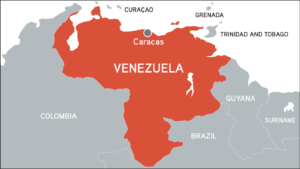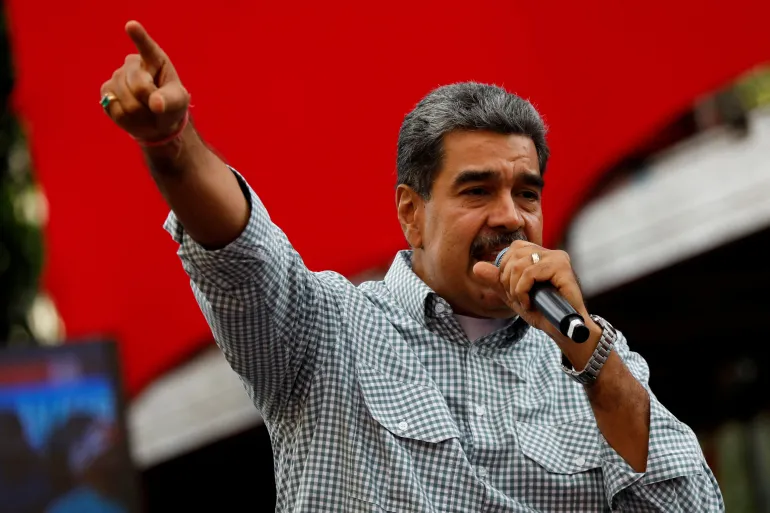A Country of Rich History and Complex Present
Venezuela, a nation situated on the northern coast of South America. It is known for its stunning landscapes, diverse culture, and complex political environment. From the bustling streets of Caracas to the expansive plains of Los Llanos and the majestic Angel Falls. Venezuela is a country of contrasts, both geographically and socially. With a population of over 28 million people, it has a rich cultural heritage shaped by indigenous, African, and European influences.
However, in recent years, Venezuela has also become a symbol of economic turmoil and political crisis. The country, which was once one of the richest in Latin America due to its vast oil reserves. It is now facing significant challenges. Understanding Venezuela’s current situation requires delving into its history, cultural identity, and the various factors that have shaped its recent struggles. This article will explore the rich tapestry of Venezuela’s past, its current affairs, and what the future may hold for this resilient nation.
A Glimpse into Venezuela ‘s History
Venezuela’s history is marked by a series of dramatic events that have shaped its development as a nation. Originally inhabited by various indigenous peoples. Venezuela was explored by Christopher Columbus in 1498 and subsequently colonized by Spain. The name “Venezuela,” meaning “Little Venice,” was given by Spanish explorers who were reminded of Venice, Italy. When they saw the indigenous stilt houses built along Lake Maracaibo.
The quest for independence began in the early 19th century, spearheaded by revolutionary leader Simón Bolívar. Bolívar, often referred to as “El Libertador,” played a crucial role in liberating several areas. As South American countries from Spanish rule, including Venezuela, Colombia, Ecuador, Peru, and Bolivia. In 1821, Venezuela officially gained its independence from Spain, becoming part of Gran Colombia, a short-lived republic that also included present-day Colombia, Ecuador, and Panama.
After breaking away from Gran Colombia in 1830. Venezuela endured a series of civil wars, dictatorships, and periods of relative stability throughout the 19th and early 20th centuries. The discovery of vast oil reserves in the 1920s dramatically transformed the nation’s economy, making Venezuela one of the wealthiest countries in Latin America. However, the reliance on oil also created vulnerabilities, leading to economic challenges whenever global oil prices fluctuated.
The late 20th century saw the rise of Hugo Chávez, a charismatic military officer who was elected president in 1998 on a platform of populism and social reform. Chávez’s “Bolivarian Revolution” aimed to reduce poverty, redistribute wealth, and challenge U.S. influence in Latin America. While his policies initially improved living standards for many, critics argue that they also led to increased corruption. Economic mismanagement, and political polarization. Chávez’s death in 2013 marked the end of an era, but his successor, Nicolás Maduro, has continued his policies, leading to the current political and economic crisis.
Current Affairs: Political and Economic Challenges
Today, Venezuela is often in the headlines due to its ongoing political and economic crises. The country is experiencing one of the most significant economic collapses in modern history, characterized by hyperinflation, widespread shortages of food and medicine, and a dramatic decline in living standards. Once the richest country in Latin America, Venezuela’s economy has been crippled by a combination of low oil prices, mismanagement of the state-controlled oil industry, and economic sanctions imposed by the United States and other countries.
Politically, Venezuela is deeply divided. Nicolás Maduro, who has been in power since Chávez’s death, faces strong opposition from both within and outside the country. His presidency has been marked by accusations of authoritarianism, human rights abuses, and corruption. In 2019, opposition leader Juan Guaidó declared himself interim president, citing what he called fraudulent elections and constitutional violations by Maduro’s government. This move was recognized by over 50 countries, including the United States and most of Europe, leading to a tense standoff between Guaidó’s supporters and Maduro’s regime.
The political deadlock has exacerbated the humanitarian crisis in Venezuela. Millions of Venezuelans have fled the country in recent years, creating a refugee crisis in neighboring countries like Colombia, Brazil, and Peru. Those who remain face daily challenges such as scarcity of basic goods, power outages, and a lack of access to healthcare. International organizations and NGOs have been working to provide aid, but the situation remains dire for many.
Despite these challenges, there are signs of resilience and hope. Grassroots movements, community organizations, and independent media continue to advocate for change and democracy. Meanwhile, diplomatic efforts are ongoing to negotiate a peaceful resolution to the political crisis. The future of Venezuela remains uncertain, but the determination of its people to overcome adversity is undeniable.
Venezuela’s Cultural Richness

While Venezuela’s recent history has been marked by crisis, its cultural heritage remains vibrant and diverse. The country is a melting pot of indigenous, African, and European influences, which is reflected in its music, dance, art, and cuisine. Venezuelan culture is perhaps best known for its lively music and dance traditions, such as salsa, merengue, and joropo, a traditional folk dance that originated in the plains region.
Venezuelan literature and art have also made significant contributions to the cultural landscape of Latin America. Authors like Rómulo Gallegos, known for his novel “Doña Bárbara,” and poets like Andrés Eloy Blanco have left an indelible mark on Latin American literature. In the visual arts, artists such as Armando Reverón and Carlos Cruz-Diez have achieved international acclaim for their work.
Venezuelan cuisine is another area where the country’s diverse cultural influences shine through. Traditional dishes like arepas (cornmeal cakes), pabellón criollo (a dish with rice, black beans, plantains, and shredded beef), and hallacas (a type of tamale) reflect a blend of indigenous, Spanish, and African culinary traditions. Food is a central part of Venezuelan culture, often bringing people together to celebrate festivals, family gatherings, and other social events.
Despite the current hardships, Venezuelans continue to celebrate their rich cultural traditions. Festivals like Carnaval and the annual Miss Venezuela pageant showcase the country’s love for beauty, music, and dance. Cultural resilience remains a cornerstone of the Venezuelan identity, providing a sense of continuity and pride amid turbulent times.
The Future of Venezuela: Challenges and Opportunities
The future of Venezuela is fraught with challenges but also holds opportunities for renewal and transformation. Politically, the country remains in a state of flux, with ongoing negotiations and dialogue between the government and opposition. The resolution of the political crisis is critical to restoring stability and addressing the humanitarian needs of the Venezuelan people.
Economically, Venezuela faces the daunting task of rebuilding its shattered economy. Diversification beyond oil, attracting foreign investment, and rebuilding trust in economic institutions are essential steps for recovery. The international community, particularly neighboring countries in Latin America. It will play a vital role in supporting Venezuela’s economic recovery through humanitarian aid, investment, and diplomatic engagement.
Socially, Venezuela’s greatest asset is its people. The resilience, creativity, and determination of Venezuelans offer hope for the future. Despite the current hardships, many Venezuelans remain committed to building a better future for themselves and their country. Grassroots movements, NGOs, and community organizations continue to work tirelessly to provide support and advocate for change.
In conclusion, Venezuela is a country of contrasts, with a rich cultural heritage and a complex political and economic landscape. Understanding its past, present, and potential future. Which requires looking beyond the headlines to appreciate the resilience and aspirations of its people. As Venezuela navigates these turbulent times, it remains a nation with a proud history and the potential for a brighter future.
Read more Articles Here, Read Previous Also.
